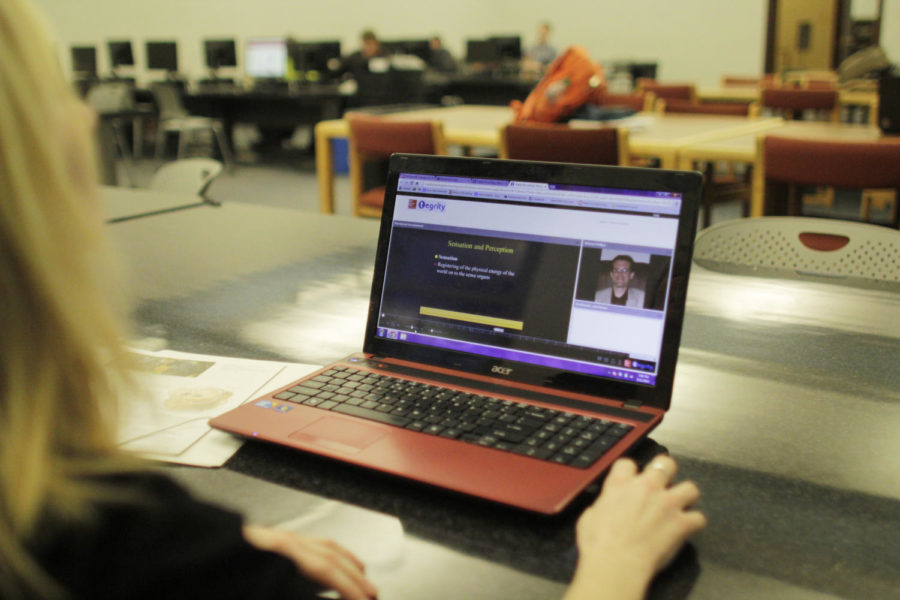Tech Tuesday: Bill Gates on online education
Kelby Wingert/Iowa State Daily
Natalie Gillenwater, sophomore in music education, is currently taking Psychology 230 online through Iowa State. She uses a textbook and often has to watch lecture videos online before she takes quizzes over the material she learns.
February 17, 2015
For the month of February, the billionaire inventor and philanthropist Bill Gates will be guest-editing the online site “The Verge” to talk about how technology will affect everything from banking to farming during the next 15 years. One of his most recent discussions with the site was about online education and the limitless possibilities with the platform.
Gates began the discussion by addressing how far we’ve come in terms of education not just in the United States but the world as a whole. During the past 15 years it has become more prevalent to see women attending higher levels of education, as well as greater numbers of people in developing countries accessing online education platforms such as Kahn Academy and Coursera.
His discussion is especially inspiring and eye-opening because many professors and those of different generations see online learning as a factor for diminishing personal contact and traditional learning environments. Gates’ view, though, sees online learning platforms as the springboard for the developing world to take their futures into their own hands.
A caveat to these benefits, however, is that gender equality must be properly addressed first so that these online courses don’t become “a cause of inequity, rather than a cure for it,” according to Gates in the interview. According to the Verge’s full article, countries such as Brazil, Russia, India, China and South Africa have a disparity of around 68 percent men to 31 percent women enrolling in online learning. Another large hurdle for the programs to overcome is proper global Internet access. Many of the programs target foreign students in developing countries and roughly 30 to 65 percent of those enrolled in programs like Kahn Academy, edX and Udacity are international students like they want. Those students, however, usually have proper Internet access or already have some level of a college education, so getting those truly in need are more of a challenge.
Despite the hurdles to overcome the possible negative effects that come with online learning, the world’s advancements in this universal learning platform foreshadow a bright future for everyone. Gates ended his speech with a nice thought-provoking point.
“As technology drives down the cost of quality education, more and more people have access to the tools they need to take control of their future anywhere in the world.”
Check out the Verge’s beautifully illustrated and easy-to-follow video here:

















